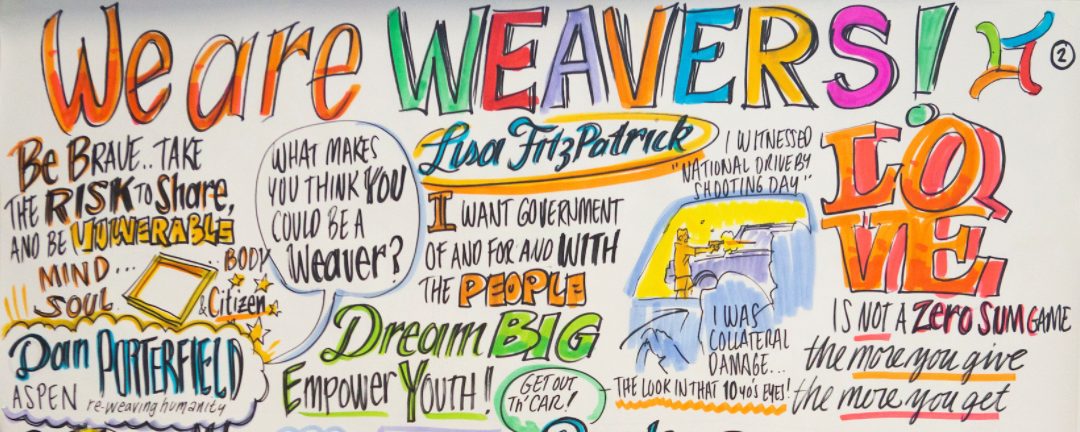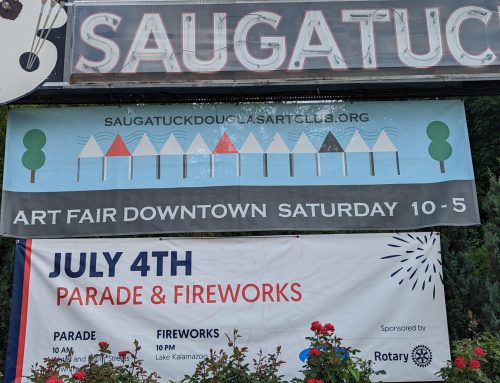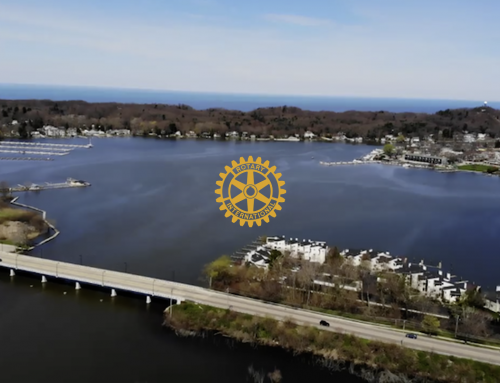WEAVE is the social fabric project began with the idea that America’s social fabric is being ripped to shreds by distrust, loneliness, alienation, inequality, racism, spiritual emptiness and tribal enmity. But we also knew that there are people fighting these scourges, successfully, at the local level all across America. Weave wanted to learn what they could teach us all. Weave wanted to shine a light on their examples and magnify their effect.
Weave traveled the country and found a movement that doesn’t know it’s a movement. In every city, neighborhood and rural small town, we found scores of people serving their neighbors and healing bonds. It wasn’t hard to find such people. They are everywhere. The actual work they do is amazingly diverse—some work with gang members in Chicago, some build gathering places in rural Montana, some work with single moms and malnourished infants in North Carolina. But deep down it is all the same work. It is building connection where there was no connection, creating relationships where there were no relationships, weaving thick neighborhoods where there were thin neighborhoods.
These people aren’t doing their work because they are interested in making money, or acquiring political power, and they are certainly not interested in fame and celebrity. They are doing their work because they want to serve their town, unleash the promise in others, ease suffering, live good lives and help create a world in which love is plentiful, not scarce.
As Weave spoke with them and got to know them, they kept hearing the same phrases: “serve the whole person,” “radical hospitality,” “deep mutuality,” “asset-based thinking,” “deep relationality,” “walkout experiences.” Whether it was red America or blue America, Weave had same sensation—there are common values here, common actions, common goals.
The social fabric is being ripped apart by a thousand forces, but these Weavers are a coherent movement of people trying to knit it back together. But they don’t have many of things most movements have. They don’t have a common identity, a name, national publications, training academies, core texts or even an articulated set of principles or creed. The most important thing these people do is their local work itself. But there is also power in coming together to realize: Our work is a part of a large, common work, our efforts are pointed to a common effort. We are one.
Social movements are not organized top-down anymore. These days they are radically decentralized, and the Weavers are radically decentralized. But there still have to be hubs—places that help provide coherence, centers of debate, centers of learning, where the common work and the common faith can be hammered out and clearly articulated. Weave: The Social Fabric Project hopes to be one of the hubs, not only with documents like these, but by telling stories, illuminating the work, gathering friends and encouraging others to Weave in their own ways, big and small.
The Rotary Club of Saugatuck-Douglas is a Weaving organization. (We just don’t realize it yet). We are exploring the possibilities of joining the Weavers network and bringing other local West Michigan allies into that relationship. Click this LINK for more information.




